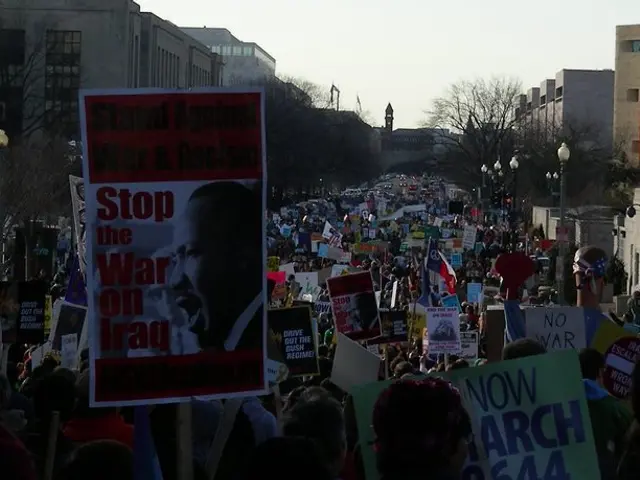Russia summons oil industry leaders for emergency discussion on Ukrainian drone attacks
In response to a series of drone attacks on critical oil refineries across Russia, the Russian authorities are taking decisive action to stabilize the fuel market and prevent a potential crisis.
The recent attacks, which have targeted refineries in Novokuibyshevsk, Ryazan, Sochi, Volgograd, and Novoshakhtinsk, have caused significant damage to key processing units and fuel infrastructure, severely disrupting domestic fuel supplies. This disruption, coupled with high military demand and refinery downtime, has pushed wholesale gasoline prices in Russia to record levels.
To address this issue, the Russian government has reinstated the "damper mechanism" subsidies, a tax preference designed to equalize profitability for oil companies selling petroleum products domestically versus exports. This move encourages refineries to saturate the domestic market despite rising wholesale prices caused by supply disruptions.
In addition, Russia has imposed export bans on petrol and diesel to avoid domestic shortages and contain further price increases. These measures aim to incentivize refineries to supply more fuel to the domestic market and stabilize retail fuel prices close to inflation levels.
However, analysts warn of looming fuel shortages and continued price pressure due to ongoing drone strikes and the physical damage to refinery operations.
The most recent attack occurred on the night of 10 August, when an oil refinery in the Russian city of Saratov was targeted. The refinery has been out of service for a month, and a major fire sparked by the attack is still causing concern.
The Russian government is holding an urgent meeting with the country's largest oil companies to discuss the current situation. Fuel prices at Russian petrol stations are 11% higher than last year, while the overall consumer price index is up by 8.2%. The lack of reserves on the independent market is contributing to the rising prices.
To "cool" the fuel market, the Russian authorities are considering radical measures, including introducing directive exchange prices. If quotations rise by more than 10% from the beginning of the month, the starting price for the trading day will be rolled back to the level at the start of the month in the proposed measures.
This summarizes the Russian authorities’ current approach as of August 2025, based on recent reports. The ongoing drone attacks on Russian refineries pose a significant challenge to supply stability, and the Russian government is working to mitigate the impact on the domestic market through economic incentives and export controls.
- In an effort to alleviate the growing health concerns due to the rising fuel prices, the Russian government is contemplating radical measures, such as implementing directive exchange prices, to keep prices stable and prevent further inflationary pressure.
- Amidst the ongoing challenge posed by the drone attacks on refineries and their impact on the economy, the Russian government is also emphasizing the importance of maintaining a balanced approach in the health sector, recognizing the possible burden of increased fuel costs on citizens' expenditures.








